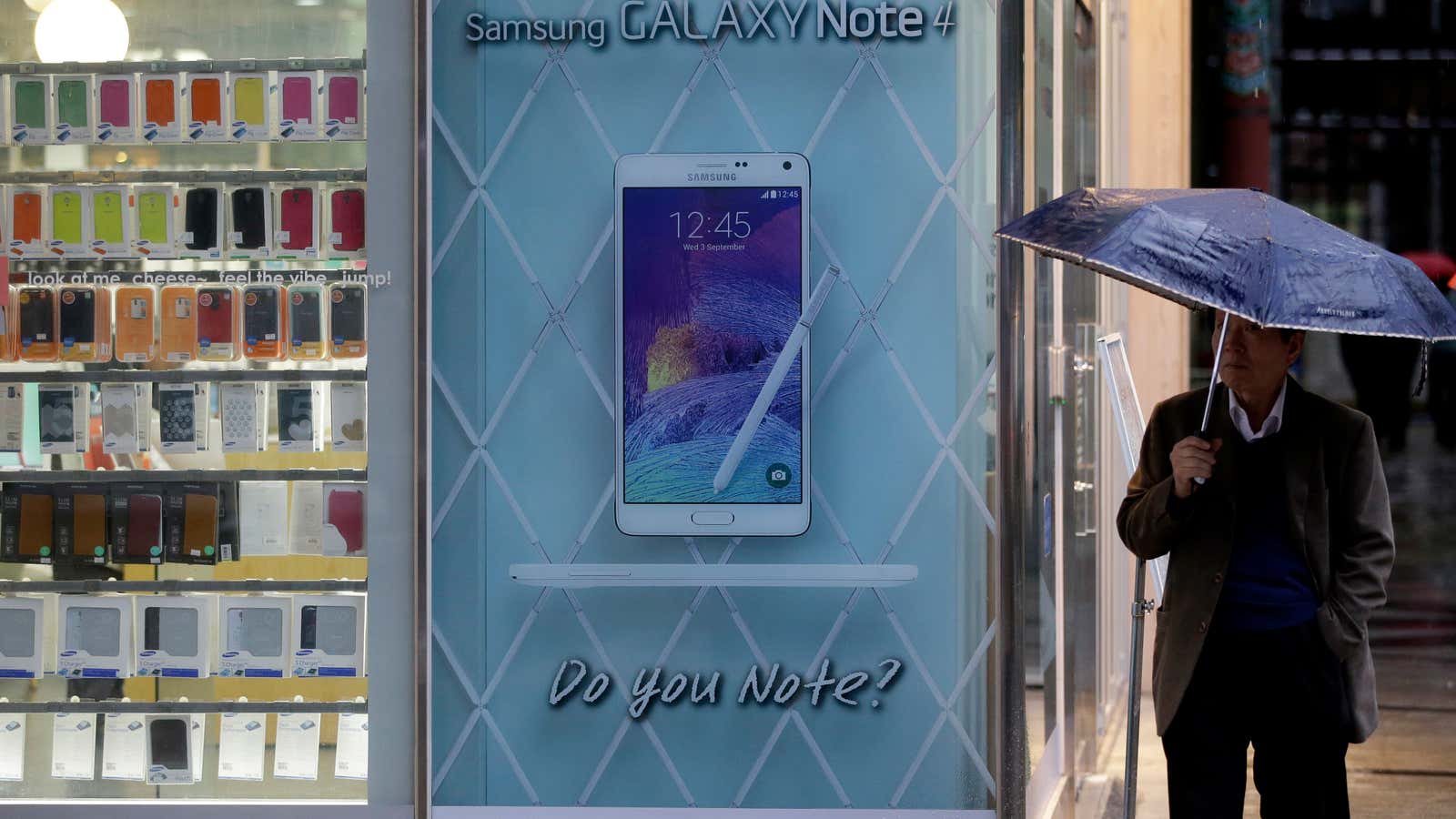The beauty of Android—Google’s mobile operating system for phones and tablets—is that it comes with a host of the internet company’s services already installed and ready to be used right out of the box. One of those, Google Wallet—a mobile payments product launched in late 2011—has been shunned by the market, thanks to a mix of poor product design, ineffective marketing, and otherwise weak distribution.
With Android powering more than 83% of the smartphones that were shipped last quarter, Google’s largest partner, Samsung, looks to have decided to take matters into its own hands. According to Re/code, the South Korean electronics giant—which made nearly one out of every four smartphones sold last quarter—is in talks with a US startup called LoopPay to launch an Apple Pay competitor next year.
A Samsung spokesman contacted by Quartz declined to comment on the report; LoopPay officials couldn’t be immediately reached.
Samsung isn’t a stranger to mobile payments. In 2012, it aligned itself with Visa to launch a limited edition batch of Galaxy S3 smartphones that supported Visa’s payWave technology. In 2013, Samsung expanded that partnership to 40 European countries and the Galaxy S4. This year, as wearables got set to take off, reports suggested Samsung would partner with PayPal to put mobile payments on its smartwatches.
It’s too early to know if the LoopPay deal will happen, let alone work. But US payments infrastructure is in for a shakeup next year with Apple launching its watch and US retailers switching to chip-based card systems.
Samsung, to be sure, has an incentive to break away from Google for a service as important to its customers’ daily life as payments. If Samsung can gain any meaningful traction with its service, it might spur a sense of customer loyalty that prevents Galaxy owners from bailing for other Android phone makers. But if Google Wallet—which beat Apple Pay to market by almost three years—had lived up to its promise, Samsung might not have had to bother.
